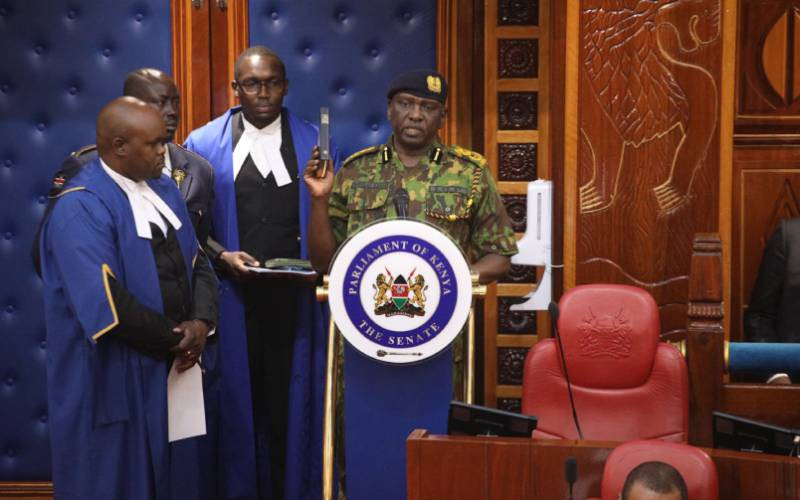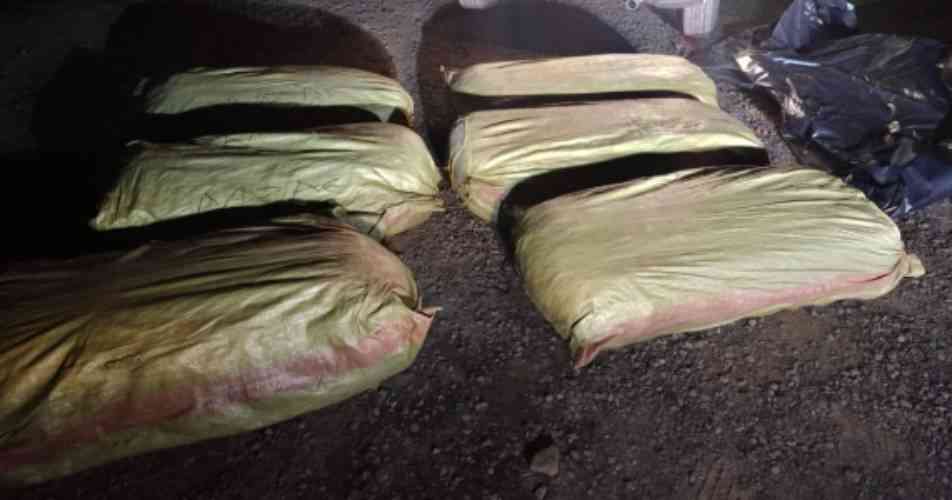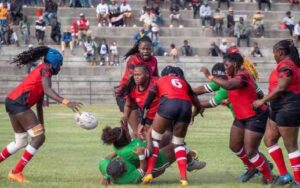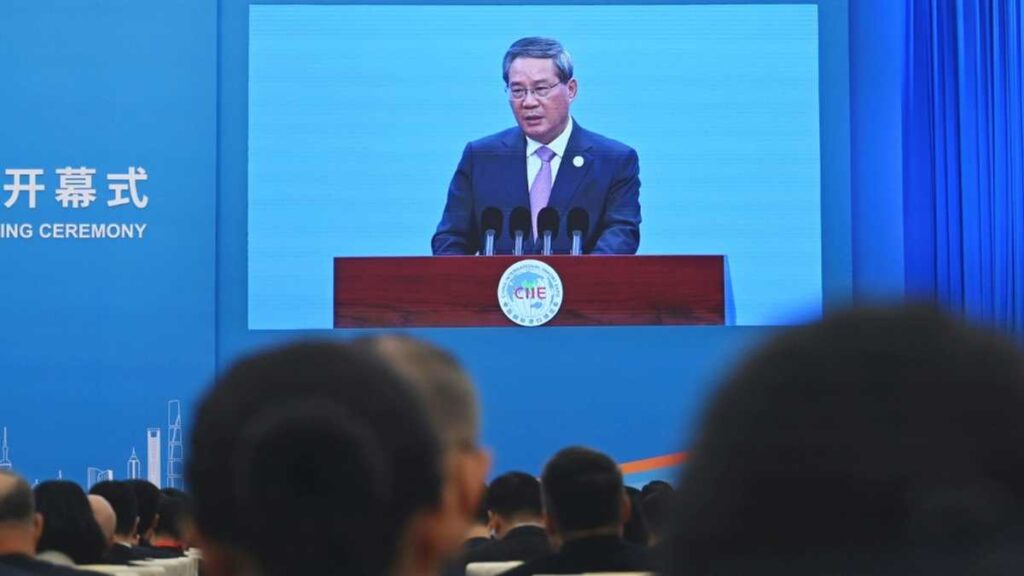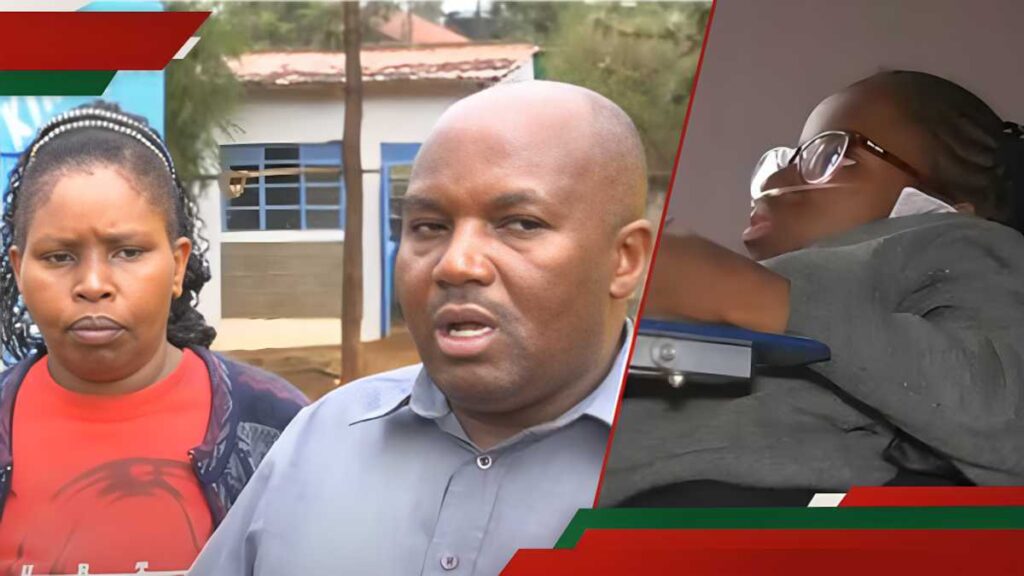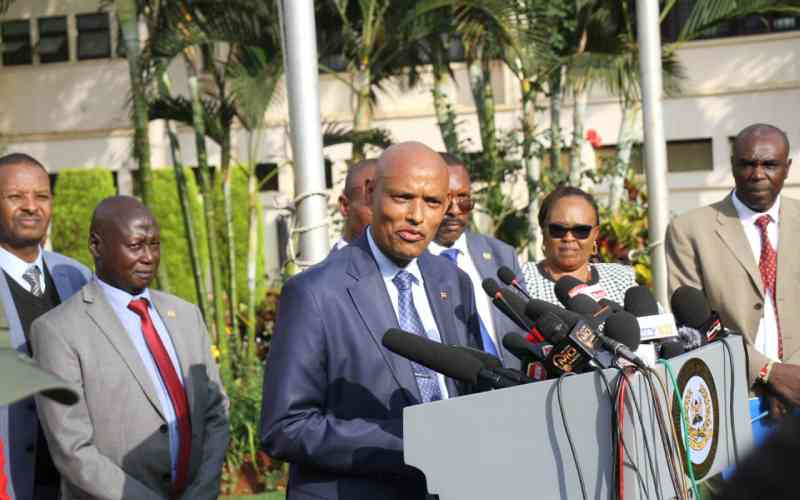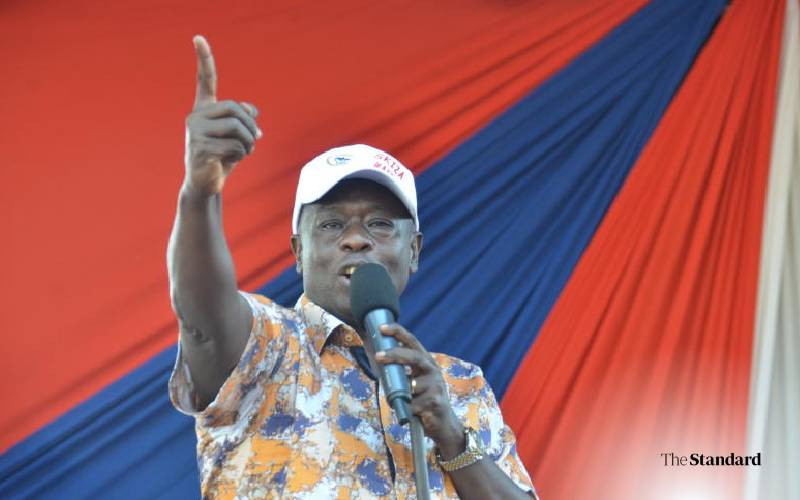The death of blogger and teacher Albert Ojwang has sparked national outrage, adding to a growing list of victims of police brutality.
Despite ongoing investigations, questions remain about the circumstances that led to his death in police custody.
Inspector General of Police Douglas Kanja appeared before the Senate on Wednesday, June 11, and presented a chronology of events leading to Ojwang’s arrest.
According to Kanja, the incident began on June 4, when his deputy, Eliud Lagat, filed a formal complaint at the Directorate of Criminal Investigations (DCI), alleging the publication of false and malicious information on social media.
Kanja claimed the posts implicated Lagat in corruption within the National Police Service, including claims that he had strategically placed trusted officers in key DCI and traffic positions to control revenue flows.
Another post showed Lagat alongside Energy Cabinet Secretary Davis Chirchir with the caption: “EACC investigating top cop after purchase of 2.6 million-dollar home in Dubai.”
Kanja told senators that the posts were deemed defamatory and significant enough to trigger investigations under the Computer Misuse and Cybercrimes Act.
The case was assigned to the DCI’s cybercrime unit, comprising Corporal Abdurahman Hussein and Constables Dennis Kinyoni, Samuel Kamau, and Milton Mwanze.
The team then sought verification from the Ethics and Anti-Corruption Commission (EACC) on whether Lagat was under investigation and asked the Communications Authority of Kenya (CA) to trace and preserve posts from the X account suspected to have shared the defamatory content.
The EACC confirmed that Lagat was not under investigation, while CAK verified that the X account was active with 13,400 followers. Investigators then identified another account managed by a man identified as Kelvin Muinde and sought further details.
Muinde was arrested in Kisii and brought to DCI headquarters for questioning. During interrogation, he named Ojwang and three others as contributors to the defamatory content. He also provided their X account handles.
Investigators then reviewed Ojwang’s account and confirmed he had posted similar content. Acting on this lead, officers travelled to Homa Bay on Friday and reported to Mawego Police Station, where three other officers joined them in arresting Ojwang.
Ojwang was first booked at Mawego and later transferred to Central Police Station in Nairobi. According to Kanja, the team made a stopover in Narok, where the suspect requested water, soda, and biscuits.
They arrived at Central Police Station at approximately 9:17 pm on Friday. Ojwang reportedly called his wife eight hours later to confirm he had arrived safely.
Stay informed. Subscribe to our newsletter
Chief Inspector Mohamed Rashid and Officer Commanding Station Hero Abdulahi authorised his booking into the cells after confirming he was physically and mentally sound.
However, on the morning of June 8, officers conducting a routine check found Ojwang unconscious in his cell. He was rushed to Mbagathi Hospital, where he was pronounced dead on arrival.
Police initially claimed Ojwang had died by suicide, but a post-mortem conducted yesterday revealed he had suffered head injuries, neck compression, and multiple soft tissue bruises, ruling out suicide as the cause of death.








